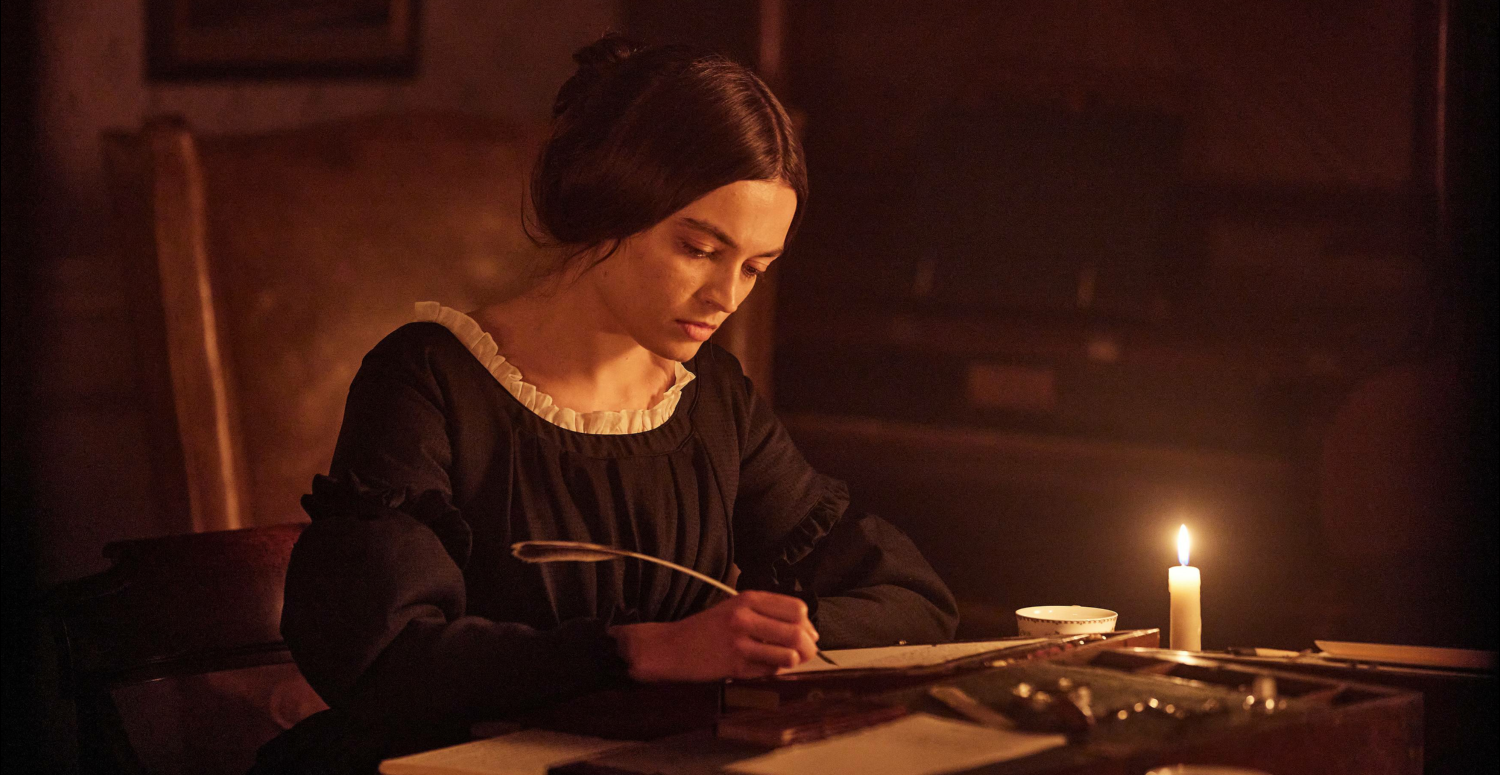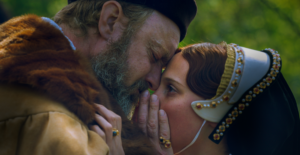Emily
Rising Star – BAFTA
2022/2023

FR EN
Présenté en septembre dernier au Festival international de Toronto, ce film britannique de Frances O’Connor revient sur la vie d’une des auteures les plus connues du Romantisme. Pour sa première réalisation, elle signe un film passionnant qui cherche plus à comprendre son personnage plutôt qu’à raconter sa vie. « Emily » porte moins sur les écrits d’Emily Brontë qu’il ne s’en nourrit en imaginant sa vie et son parcours en vue d’explorer les sources de son écriture.
L’actrice australienne bouscule le film de costumes avec un biopic qui frôle à la fois l’incarnation à la « Tesla » et la fiction à la « Eiffel ». Dans la mesure où l’on en sait si peu sur sa vie, la désormais scénariste et réalisatrice fait le choix d’utiliser le célèbre roman « Les Hauts de Hurlevent » comme porte d’entrée dans la vie de son auteure, son imagination et son caractère. Emily Brontë est alors rendue à sa vérité (imaginée) et à son imagination dans un biopic qui parvient à donner une impression de réalité tout en prenant plusieurs libertés artistiques. O’Connor lui prête ainsi une passion avec un vrai vicaire mais qui fut hypothétiquement son amant, ainsi qu’une rivalité avec ses sœurs, la montre chérissant son roman imprimé alors que les sœurs Brontë publiaient sous pseudonymes ou encore induit une certaine influence d’Emily sur Charlotte dans son élan rédactionnel alors que « Jane Eyre » fut publié la même année que « Les Hauts de Hurlevent ». Mais qu’importe, là n’est pas l’objet du film, le message en revanche est clair : elle en fait la plus audacieuse, la plus visionnaire et la plus lucide du trio de sœurs. En mêlant réalité biographique et éléments littéraires, ce biopic en fait ainsi une femme vivante plutôt qu’une figure historique figée.
C’est un film moderne dans le sens où il met en scène des comportements de manière à ce que le spectateur les traduise avec son vocabulaire d’aujourd’hui, mais aussi dans sa mise en scène dynamique avec une caméra portée ne reculant pas devant les mouvements et les gros plans, un montage rythmé et un impressionnant travail de mixage son. Elle s’aventure presque dans le fantomatique dans une scène où la frontière entre jeu et emprise se brouille où le masque n’est alors plus la continuité du jeu social de l’époque mais devient une force narrative.
Emma Mackey porte le film avec son interprétation sensible et intense d’Emily Brontë lui donnant une détermination et un sentiment d’affranchissement contemporain aux côtés d’Oliver Jackson-Cohen (le vicaire) et de Fionn Whitehead (son frère source d’inspiration). L’actrice franco-anglaise de « Sex Education » ajoute une réelle plus-value à un scénario où le passage et la progression dans la langue de l’amour sont bien visibles et représentent cette détermination à s’exprimer et exposer son point de vue même avec un vocabulaire limité. Son personnage incarne une jeunesse éternelle hurlant son désir de liberté et de défier l’ordre établi, une flamme qui contrairement à son entourage ne s’attache pas inextricablement à la raison et trouve une imagination et une certaine liberté dans sa propre pensée : “freedom in thought” !
Un saisissant premier film entre l’historique et le poétique qui se heurte malheureusement à un box-office limité à $3,7M.
Raphaël Sallenave
Presented last September at the Toronto International Film Festival, this British movie by Frances O’Connor revisits the life of one of the most famous authors of the Romantic movement. For her first directorial venture, she delivers a thrilling film that seeks more to understand her character than to tell her life story. “Emily” is less about Emily Brontë’s writings than it is inspired by them, imagining her life and her journey to explore the sources of her writing.
The Australian actress subverts the period drama with a biopic that verges on both “Tesla”-like personification and “Lawrence of Arabia”-like fiction. Since so little is known about her life, the newly turned writer-director chooses to use the famous novel “Wuthering Heights” as a gateway to her author’s life, imagination and character. Emily Brontë is then restored to her (imagined) truth and imagination in a biopic that manages to give an impression of reality while taking several creative liberties. O’Connor thus gives her a love affair with a real curate who was hypothetically her lover, as well as a rivalry with her sisters, shows her cherishing her printed novel though the Brontë sisters published under pseudonyms, or even implies a certain influence of Emily on Charlotte in her creative impulse, even though “Jane Eyre” was published the year of “Wuthering Heights”. But that is simply not the point of the film, the message however is clear: she makes her the most daring, the most visionary and the most clear-sighted of the three sisters. By mixing biographical reality and elements of literature, this biopic makes her a lively woman rather than a frozen historical figure.
This is a modern film insofar as it stages behaviors in such a way that the viewer can translate them with today’s vocabulary, but also in its kinetic execution with a handheld camera that uses motion and close-ups, a dynamic editing and an impressive sound design. It almost ventures into the ghostly in a scene where the border between role-playing and possession is blurred and the mask is no longer the continuity of the social game of the time but becomes a storytelling thrust.
Emma Mackey brings the film to life with her sensitive and intense interpretation of Emily Brontë, giving her a determination and a sense of contemporary emancipation alongside Oliver Jackson-Cohen (the curate) and Fionn Whitehead (her inspiring brother). The French-English actress from “Sex Education” offers a real added value to a script where the transition and progression in the language of love are clearly displayed and represents this determination to express herself and her point of view even with a limited vocabulary. Her character embodies an eternal youth shouting its desire for freedom and defying the established order, a flame that unlike her entourage is not inextricably bound to reason and finds imagination and a certain « freedom in thought »!
A striking debut feature somewhere between the historical and the poetic that unfortunately faces a limited box-office of only $3.7M.
Raphaël Sallenave

